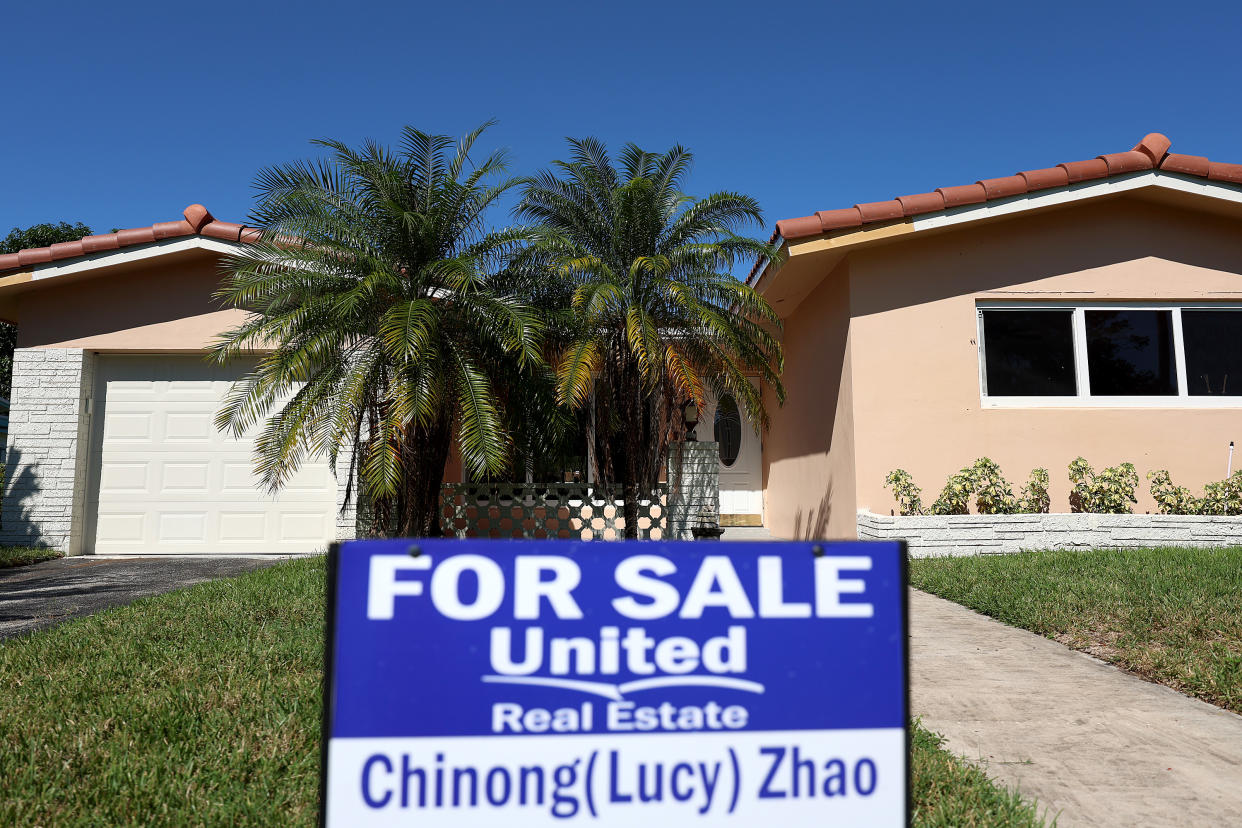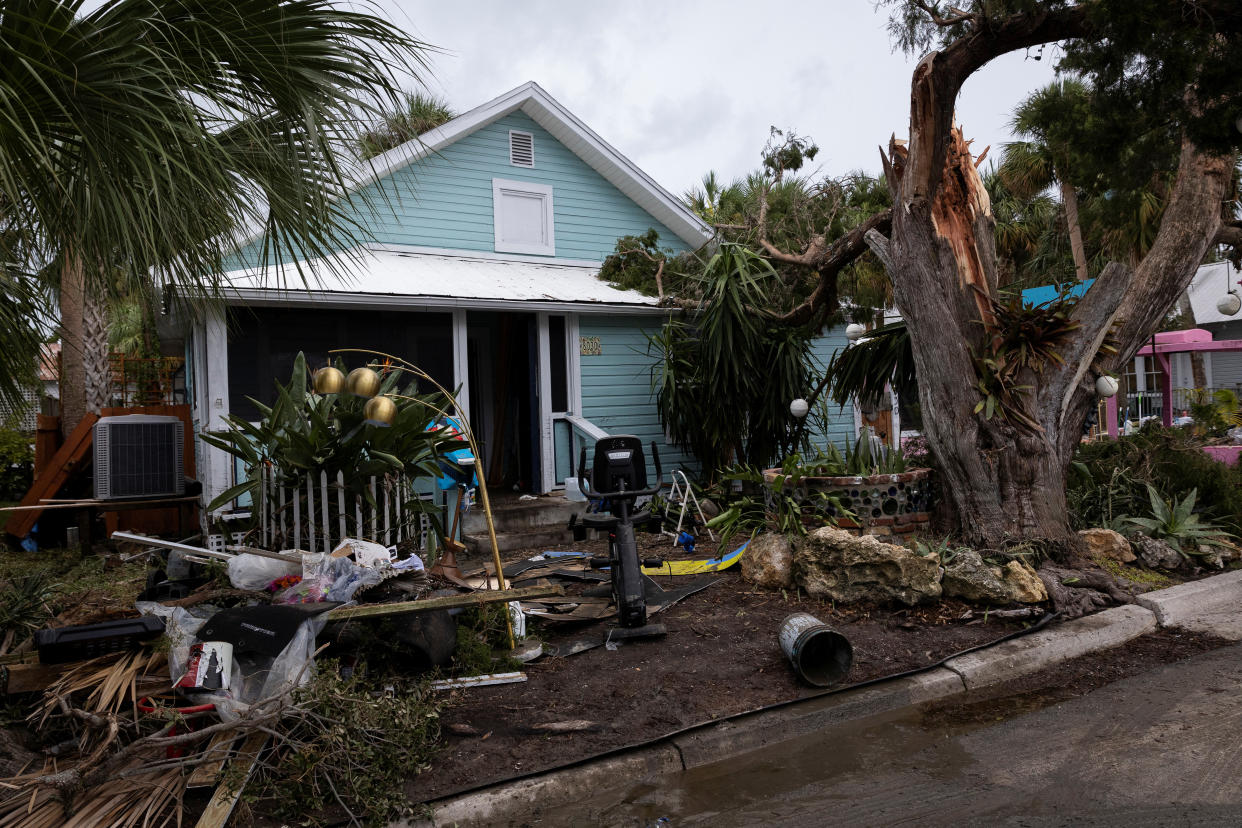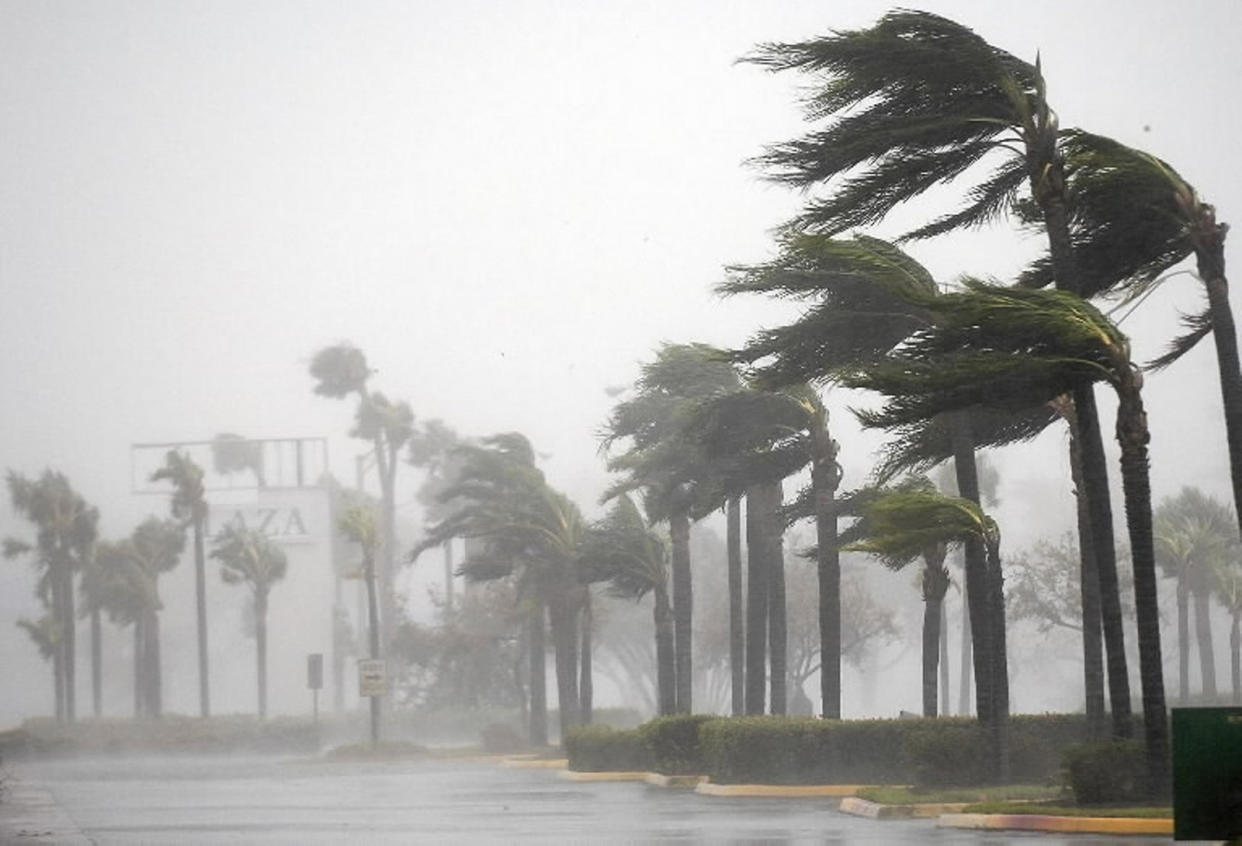Florida's insurance crisis poses yet another obstacle for homebuyers there
Florida's insurance crisis was threatening the closing of Gernelle Bokuniewicz’s clients for their dream retirement home in Winter Park, Fla.
Frustration began to brew when her client received a premium quote of $17,000 a year for homeowner’s insurance, even though the current owner is paying just $5,000 for the same coverage. Things got worse when the insurance company retracted its quote, citing the high risk associated with the property, leaving Bokuniewicz’s clients scrambling for another insurer before the deal dies.
"I've run into issues before but nothing like this where I couldn't find any insurance for home," Bokuniewicz, the founder of Lively Real Estate, told Yahoo Finance. "It's pretty scary if there is nobody to provide insurance."
That’s becoming a bigger reality — and problem — for Florida homebuyers who typically must obtain homeowner’s insurance as a condition of a mortgage. But as multiple insurers pull out of the state altogether due to rising costs, that’s getting harder to do at a reasonable price and as mortgage costs in general rise.
Read more: Types of mortgage loans: Buying a house in 2023
"[Homeowners insurance] has outrageous prices and trying to get coverage is a problem," Bokuniewicz said.

‘Quite a significant change in price’
Floridians already pay the highest home insurance premium in the nation at an average of $6,000 a year in 2023, a year-over-year increase of 42% and 3.5 times higher than the US average of $1,700.
"If you were to go back to 2019, our average premium in this office was about $900 for a home," David Pojero, insurance agency owner based in Debary, Fla., told Yahoo Finance. "It’s $2,400 today."
"It's quite a significant change in price," Pojero added.
Florida's insurance crisis can be attributed to the increase in reinsurance and litigation fees. Companies that cannot afford the rising prices either leave the state or pass down the cost to consumers.
The state recently repealed a long-standing provision called the one-way attorney's fee that requires insurers to pay a reasonable amount of litigation fees for policyholders if they secure any amounts against the insurance company. Legislators saw this as a way to reduce insurance costs, although Floridians may face a financial burden when going after insurance companies for claims.
"This is definitely one of the harsher things that's hitting the Florida real estate market right now," Pojero said. "Insurance costs are so high so it's almost like a risk of how high your payment can go."
‘Insurance companies are really cracking down’
Reinsurance, essentially an insurance company's insurance, surged as hurricanes increased in frequency and severity in the state. Reinsurance rates escalated 45% to 100% in January 2023, and another 20% to 40% in June after Hurricane Ian caused almost $114 billion in inflation-adjusted costs.
"There is a lot of unpredictability when it comes to weird kinds of anomalies — storms and fires and all kinds of stuff — especially here where our biggest issues obviously are going to be hurricanes or wind storms," Pajero said. "So when there is a lot of uncertainty, a reinsurance company will plan for the worst and hope for the best and jack the pricing up."
In tandem with soaring premiums, insurance companies are cracking down on policyholders.
The house in Winter Park that Bokuniewicz represents was deemed uninsurable due to four prior insurance claims both the buyers and homeowners made.

The current owner sought reimbursement once for a toilet overflow, while the prior owner made a roof damage claim after a hailstorm and another undisclosed claim. The insurance company also found that Bokuniewicz's buyers made claims based on their washing machine hose in their old house in Massachusetts. The fact that the insurance company looked into four different claims for three separate households shocked Bokuniewicz.
"I sell about 60 houses a year. This is the first time [the insurance company] is looking at all of this, including a prior owner," Bokuniewicz said. "It's something new to me. The insurance companies are really cracking down."
‘Insurer of last resort’
Florida does have a fall back. The state-sponsored insurance with Citizens Property Insurance is available for uninsurable homes, but it has many restrictions.
"They are the insurer of last resort in Florida," Pojero said.
Citizens is only eligible if homeowners have no other option or if private options are at least 20% pricier. Its low rates are not guaranteed and are prone to annual increases. It also provides lower coverage with a total value cap of $700,000 (or $1 million in Miami-Dade and Monroe Counties). It also has many limitations with lower coverage.
"I have a pool and a screened-in enclosure. Citizens doesn't cover screened-in enclosures," Pojero said. "My risk is now $15,000 for a new screened-in enclosure if a hurricane blows it down. So I'm staying with my private company."

Impact on home loans
In today's high premium era, Pojero said he has had to work with lenders to make quote adjustments because homebuyers cannot pass the requirements for financing.
"I have had several lenders contact me prior to closing, after we've issued a policy and say, 'hey, we need this significantly lower because the debt-to-income ratio doesn't work," Pojero said. "When lenders planned $1,500 for the insurance, and it comes out to be $3,500, there's a large gap in there."
But insurance premiums also can't be too low because homes need sufficient coverage when disaster strikes.
"If there's room we'll certainly work with everybody," Pojero said. "But there's been times where I have to tell them, ‘I’m sorry, I can't go any lower.’"
"We just can't drop below a certain point where the client cannot reasonably afford to make repairs on the property should there ever be a claim," Pojero added.
Homebuyers who cannot find insurance — due to lack of private insurers or the home values exceed Citizens coverage — won't be able to close on their mortgage.
"There are definitely cases and transactions happening where because there is no insurance, homebuyers are not able to get a mortgage transaction completed," Nathaniel Bittman, a mortgage professional based in Florida, said.
The difficulties only add to the challenging market now for buyers as mortgage rates approach 8% and prices remain elevated due to low inventory, testing affordability parameters.
Read more: Mortgage rates at 20-year high: Is 2023 a good time to buy a house?
"This is the first time in a very, very long time where you had really high interest rates, very high property values because of limited inventory, and then, of course, insurance rates are very high because you don't have enough carriers in the state," Bittman said.
As for Bokuniewicz’s buyers, they finally found another homeowners insurance option and closed on their home last week.
"Thank goodness," Bokuniewicz said. "They ended up with two options at $10,000 a year, but still pricey."
Rebecca Chen is a reporter for Yahoo Finance and previously worked as an investment tax certified public accountant (CPA).
